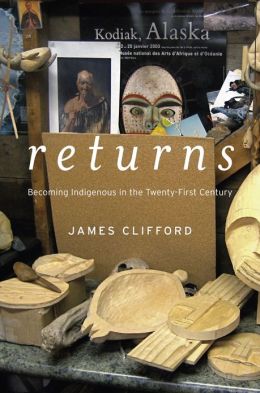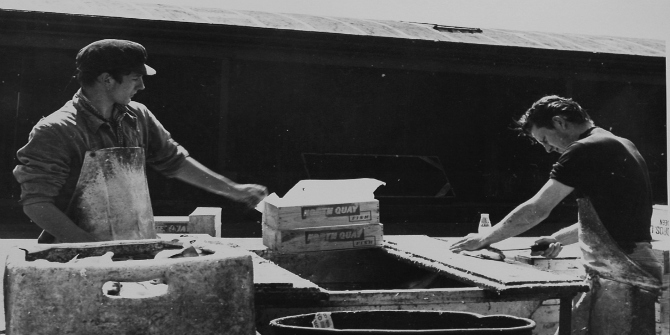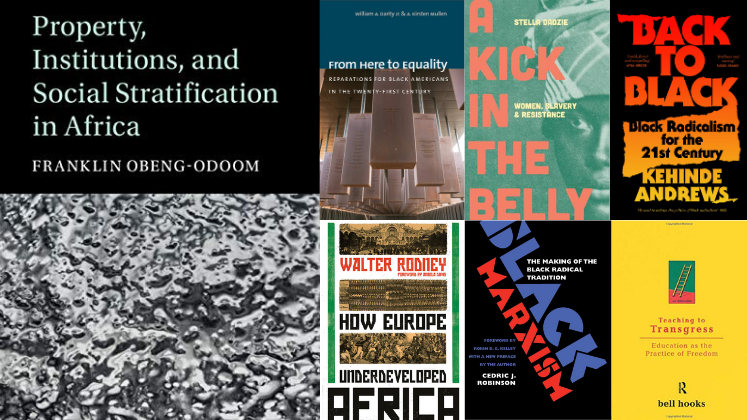
It was once widely assumed that native and tribal societies were destined to disappear under the shadow of globalization. Sooner or later, irresistible economic and political forces would complete the work of destruction set in motion by culture contact and colonialism. But many aboriginal groups persist, a reality that complicates familiar narratives of modernization and progress. In Returns, James Clifford engages with indigenous histories of survival and transformation to explore the ways people recover and renew their roots. Sarah Burton finds this a fascinating read for historians, sociologists and anthropologists.

The global social developments of the early twentieth century – capitalism, war, and Western expansion – seemingly presented numerous challenges to indigenous peoples across the world. In his Preface to Returns, anthropologist James Clifford explains how many believed that genocide and acculturation would ‘do history’s work’ (p.7) and wipe out native peoples across the globe. However, by the late twentieth century it was clear that this was not the only – or indeed most appropriate – narrative of the fate of these groups. Instead of disappearing, these societies were holding on: ‘adapting and recombining the remnants of an interrupted way of life’ (p.7) in order to both endure and take account of postmodernity and its global impact. Thus the 1980s and 1990s saw indigenous people move from the stereotype of ‘pathetic victims or noble messengers’ to become ‘visible actors in local, national and global arenas’ (p.13). Returns tracks the multiple and numerous narratives involved in this reconceptualization of what it means to be ‘indigenous’ or ‘native’ in the cosmopolitan twenty-first century.
Returns is the third volume in a series beginning in 1988 with The Predicament of Culture and followed in 1997 by Routes and builds on the relationship between ethnography and epistemology discussed in the initial texts. Returns brings new forms of analysis and perspectives to these debates owing to its fresh consideration of cosmopolitanism and (post)modernity and the impact of these upon indigeneity. However, Clifford’s assertion that ‘all the important questions remain open’ and that ideas ‘begun in one book’ are ‘reworked’ in others (p.1) points to Returns not as the full stop at the end of a story, but instead as one of a series of lines of knowledge and narrative (here perhaps drawing on Ingold, 2007). Indeed the concerns within Returns emerge not only within a context of social anthropology and questions surrounding the place of indigenous people in modern societies (see Gausset, Kenrick and Gibb, 2011) but also among sociological scholarship on the concept of identity and belonging (May, 2011) and the necessity of historical, postcolonial perspectives to social theoretic writing (Bhambra, 2010). On this basis, Returns is of potential interest to a range of readers – both those interested in the anthropology of social movements but also scholars of knowledge and intellectual history.
Clifford states that his aim is to explore ‘the indigenous histories of survival, struggle and renewal’ which became visible during the 1980s and 1990s (p.7). His argument is that these processes of ‘becoming’ have seen indigenous people ‘creating new pathways in a complex postmodernity’ (p.7). Throughout the text Clifford argues for ‘an ethnographic and historical realism’ (p.7). The first chapter, ‘Among Histories’, sets this perspective in context. Clifford begins with a discussion of the reshaped meanings of the term ‘indigenous’ in a global society that is shaped both by the hold of the past in the present day, and the velocity of modernity and globalization. In this context, Clifford contends that
To take seriously the current resurgence of native, tribal or aboriginal societies we need to avoid both romantic celebration and knowing critique. An attitude of critical openness is required, a way of engaging with complex historical transformations and intersecting path in the contemporary world (p.13).
It is this position that Clifford subsequently terms ‘realism’ (p.13) and the foundational philosophy that informs the entire text. Clifford thus argues that the ‘transformative survival and growing vitality’ of various indigenous peoples ‘challenges narrative assumptions that have long authorized western projections of civilization, modernity or progress’ (p.21). The remainder of this chapter is split into three ‘Alter Histories’ in which Clifford confronts the ways in which modernity, globalization, history, development and culture (among others) have all been narrated from a Eurocentric, ethnocentric, even colonial standpoint; Clifford here provides alternative interpretations of epistemology from various indigenous routes.
Clifford finishes the first chapter by introducing a cluster of analytic terms: ‘articulation’, ‘performance’; and ‘translation’. These terms, Clifford notes, ‘make up a portable toolkit for thinking not reductively about social and cultural change’ (p.45). Because they are all ‘terms of process’, they ‘do not lend themselves to systematization’ (p.45) – thus moving forward from what Clifford earlier notes as the crude and simplistic techniques of those such as Lévi-Strauss (p.22). All three of Clifford’s analytical terms share a certain discursiveness and rejection of monolithic, securely-held knowledge. Articulation, as he notes, ‘always includes the possibility of disarticulation’ (p.46). In regard to performance, Clifford draws on Foucault’s concept of subjectification in which a ‘mobile and decentred conception of power’ works through ‘experiences of wholeness, empowerment, fulfilment and freedom’ (p.47). Translation, too, ‘brings out the bumps, losses and makeshift solutions of social life’ with the result that ‘we are less inclined to reify a correct or completed ideology’ (p.48). These modes of analysis are certainly useful to the careful researcher, especially in their equal attention to concerns both of poststructuralist/postmodern thought and the materiality of the lived experience.

Chapter 5, ‘Hau’ofa’s Hope’ is based on Clifford’s address to the Association for Social Anthropology in Oceania (ASAO) and centres on a discussion of Epeli Hau’ofa whom he describes as ‘an indigenous, cosmopolitan visionary’ (p.195). Hau’ofa, a native of the Pacific Islands, was a social scientist who taught at the University of the Pacific and founded the Oceania Centre for Arts and Culture; in addition to this he also wrote satirical novels. Clifford emphasizes the role of narrative in the formation of Hau’ofa’s conception of utopia: ‘Hau’ofa’s sense of possibility was grounded in history’s multiple threads, continuities in transformation, as these are rewoven in repeated social practices’ (p.201). It is here that the reader keenly feels the necessity of nuancing Western sociological and anthropological perspectives with (post)colonial histories and epistemologies. Clifford articulates and disarticulates the Eurocentric view of global society by putting an indigenous voice centre-stage. Here he notes that Hau’ofa reacted against
quite specific forms of political-economic “realism” that have certainly not lost their relevance and force. More than once, even as he discovered and articulates his visionary voice, Hau’ofa reminds us of this other perspective and of the need to temper its power (p.202).
Clifford argues in this chapter for non-linear history and for a realism which is not reified. He asserts that the utopia presented by Hau’ofa and ‘based on past and present acts of connection that don’t align along dominant trajectories of core and periphery, tradition and modernity, local and global – seems more like a history that could find space to grow’ (p.212). As Clifford notes, ‘Incompleteness, juxtaposition, with ends unwoven and edges rough, is a more realist mode of representation that functional integration, however flexible and dynamic’ (p.211). This thoughtful and fascinating text certainly draws attention to a multitude of epistemological and ontological issues which surround processes and practices of academic writing – and Clifford’s call to push further as regards the texture, incompleteness and openness of our prose is one that should be heard attentively. Equally however, it cannot be ignored that a text stressing the different epistemological positions that stem from taking seriously the voices of indigenous peoples, from re-orienting the Western worldview that dominates current academic thinking, is written from the perspective of a white man embedded in that academy. Returns, sadly, includes little first person prose/speech of indigenous people.
Clifford finishes the volume with an epilogue discussing Native Alaskan historian, Barbara Shangin. Through his investigation of her, he comes to hear Shagin’s voice not only in terms of this description, but also via the multiple identifications and forms of belonging that nuance her character. Shangin moves from representing the ‘cultural authority [of] a Native Elder’ to being ‘a reminder of how indigenous knowledge is disseminated through translations and interpretation across times, places, generations and cultures’ (p.318). This reflection is indicative of the text’s constant attention both to ‘history’ and ‘identity’. He ends by questioning ‘What falls away and what is added in the process?’ (p.318). This perspicacious consideration is useful to bear in mind when we come to write ourselves.
—————————————
Sarah Burton is currently an ESRC-funded doctoral candidate at Goldsmiths College. Her research uses the concept of mess to investigate the value system(s) underpinning the production of knowledge in contemporary social theory. Having also spent several years involved in various artistic projects centring round theatre, classical music and writing/publishing, her academic research draws both on her formal education and also these forms of creative practice. Sarah convenes the British Sociological Association Postgraduate Forum and Activism in Sociology Forum, of which she is a founding member. Sarah also does lots of ‘fringe’ academia and is part of the collective working on the Woman Theory project. Read more reviews by Sarah.








1 Comments